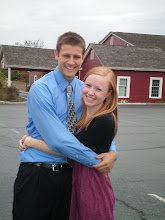I find the intersectionality theory or approach the most compelling out of those discussed in Chapter Six. I prefer this model more so than the others because I agree that many factors contribute to the way you perceive different aspects of folklore.
For example, whether you are male or female really affects your stance on various cultural values including abortion, dress code, or even the history of voting rights. Gender plays a large role in folklore interpretation.
Personal experiences are crucial to your own development and viewpoints on most issues. Your socio-economic status might alter your opinion on taxes or government programs. Relationships that you have with people who are of a different sexual orientation greatly affect opinions of gay rights and marriage.
This theory is the most compelling because I don’t believe there is a direct formula or pattern that determines someone’s outlook on folklore like the Structuralist theory suggests. I also don’t agree that every issue has a corresponding meaning and purpose like the Functionalist theory. I think that the Intersectrionality theory describes the best approach to folklore because every person has a different lifestyle, background, and experiences that affect their perception on life.
This post is in response to the Chapter 6 Reflection Question.

No comments:
Post a Comment